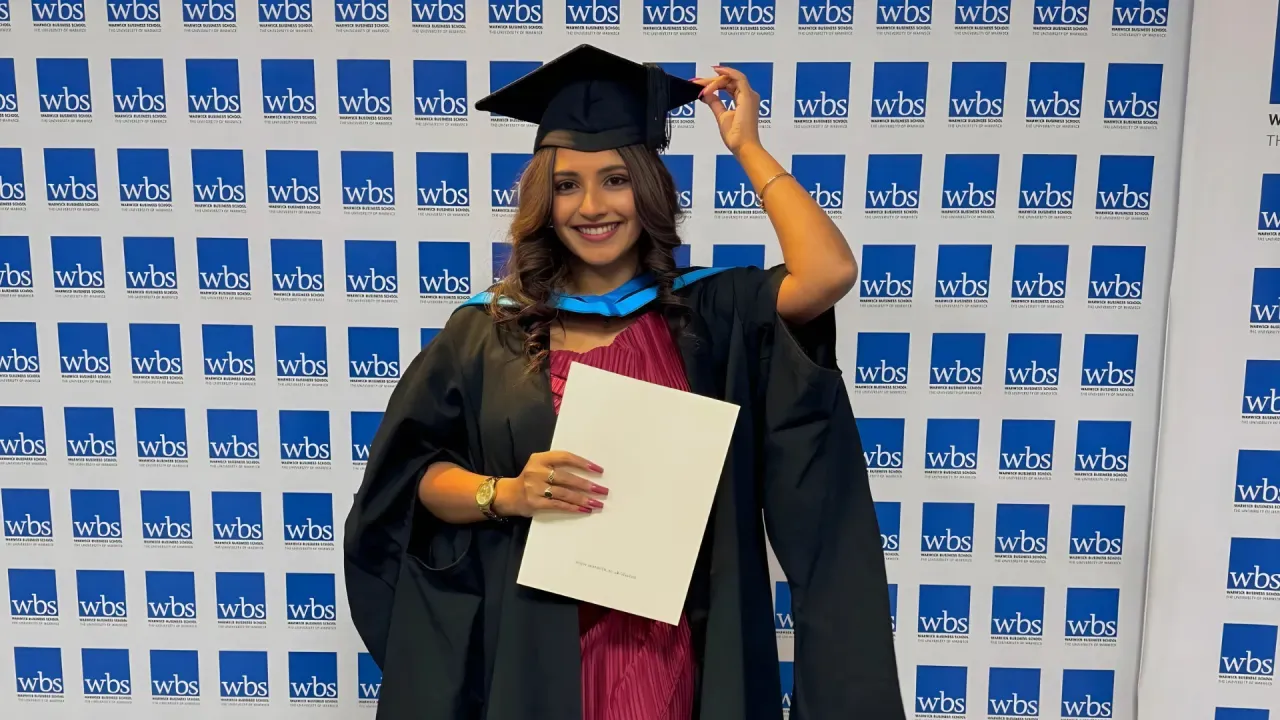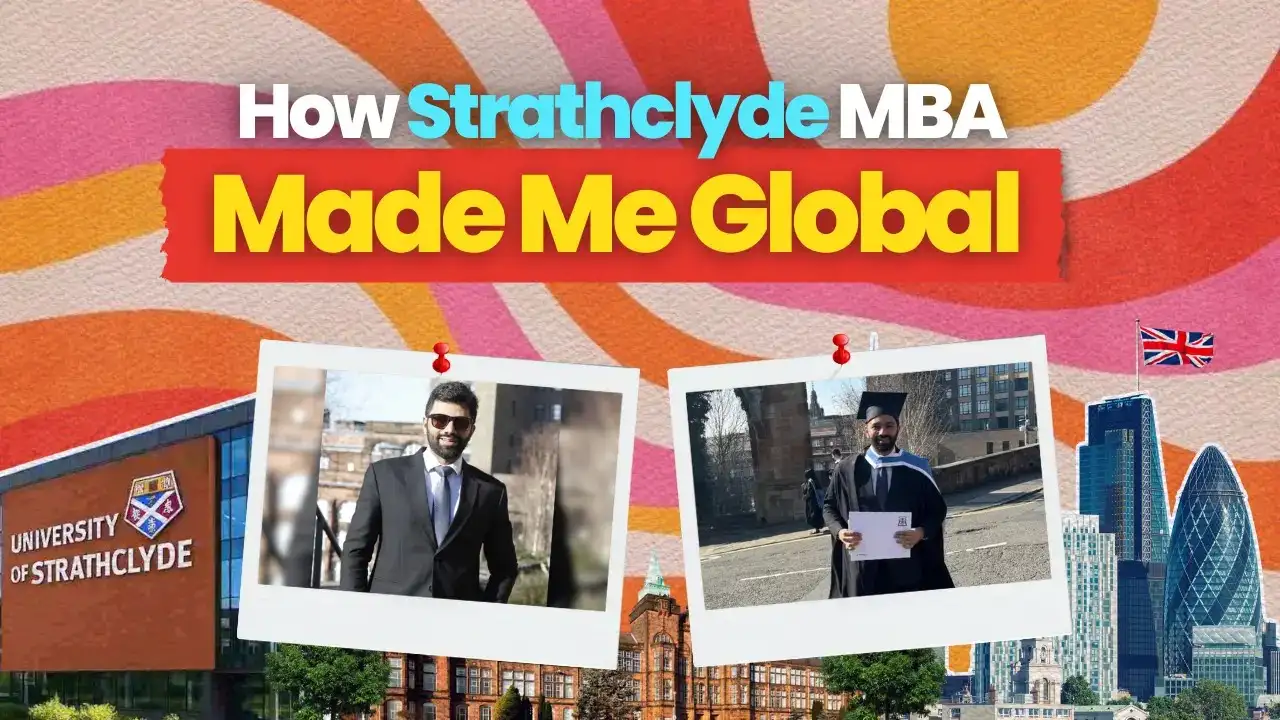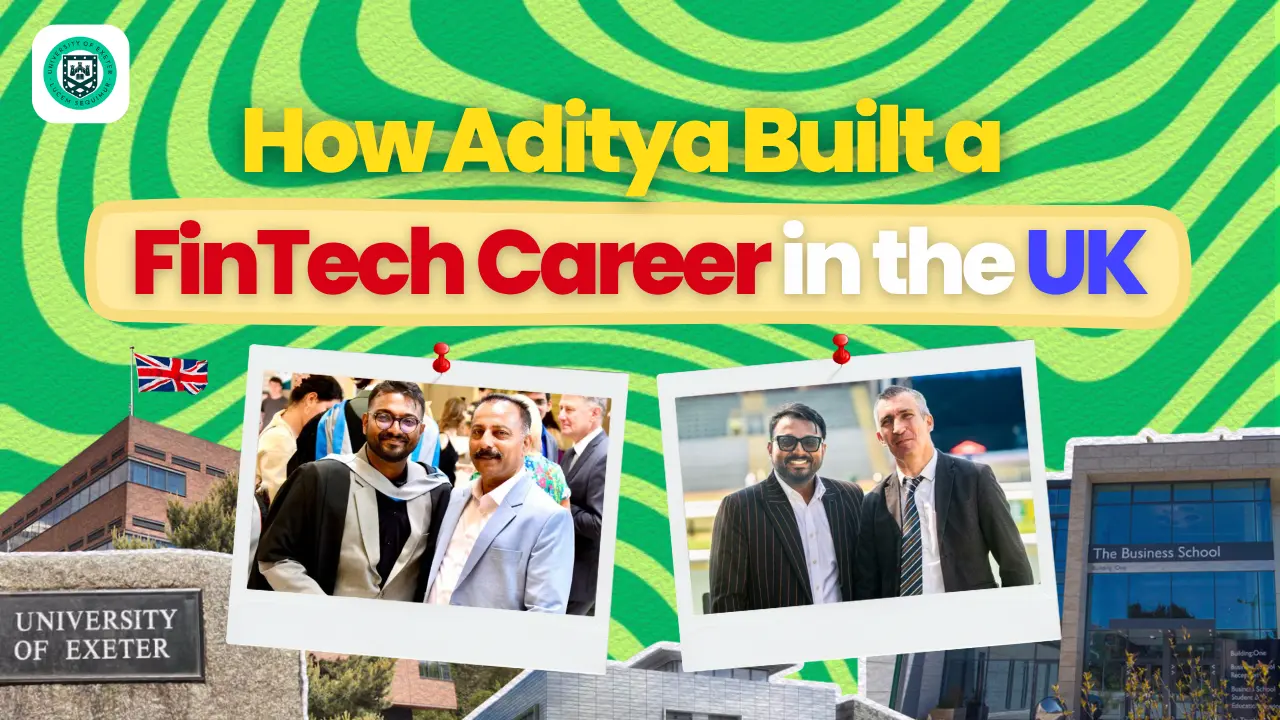Student Reviews
Navigating ATS Hurdles and Job Market: Makarand’s Leap Scholar-Backed Journey to the UK

Makarand P Batchu is a Data Scientist at Evelyn Partners with a strong academic foundation in technology and analytics. He holds a Master’s degree in Data Science and Analytics from the University of Leeds and a Bachelor’s degree in Electronics and Communications Engineering from Osmania University .
In his journey from engineering to advanced data science, Makarand explains how his study abroad experience shaped his career and how Leap Scholar played an integral role in helping him pursue higher education in the UK.
Q. Tell us about your background.
I’m from Hyderabad. I worked at Cognizant for two years after graduation. Over time, I realized I wasn’t happy with the kind of work I was doing and decided to take a career break. During that period, I started preparing for competitive exams like CAT and GRE, since pursuing a master’s abroad had always been an aspiration of mine. I later worked at S&P Technologies, gaining experience with Microsoft Azure and data science projects, and then at Deloitte. It was during my time at Deloitte, especially with the shift to remote work during the pandemic, that the thought of pursuing a master’s abroad came back stronger. I wanted the kind of international exposure that I felt could really shape my career.
Q. How did you come across Leap Scholar?
I first came across Leap Scholar on social media. Later, I also heard about it through friends and acquaintances who had used their services, and the feedback was really positive. That word of mouth gave me the confidence to go ahead with them. The services I used primarily included university applications, consultancy, and the visa process. What I really appreciated was how supportive and flexible the team was. My advisor was very prompt and helpful, especially in shortlisting universities. Even though there was a set template for the number of applications, Leap Scholar accommodated my request to apply to a few more. There were multiple revisions in the shortlist of universities and courses, and I also received excellent feedback and edits for my SOP and LORs.
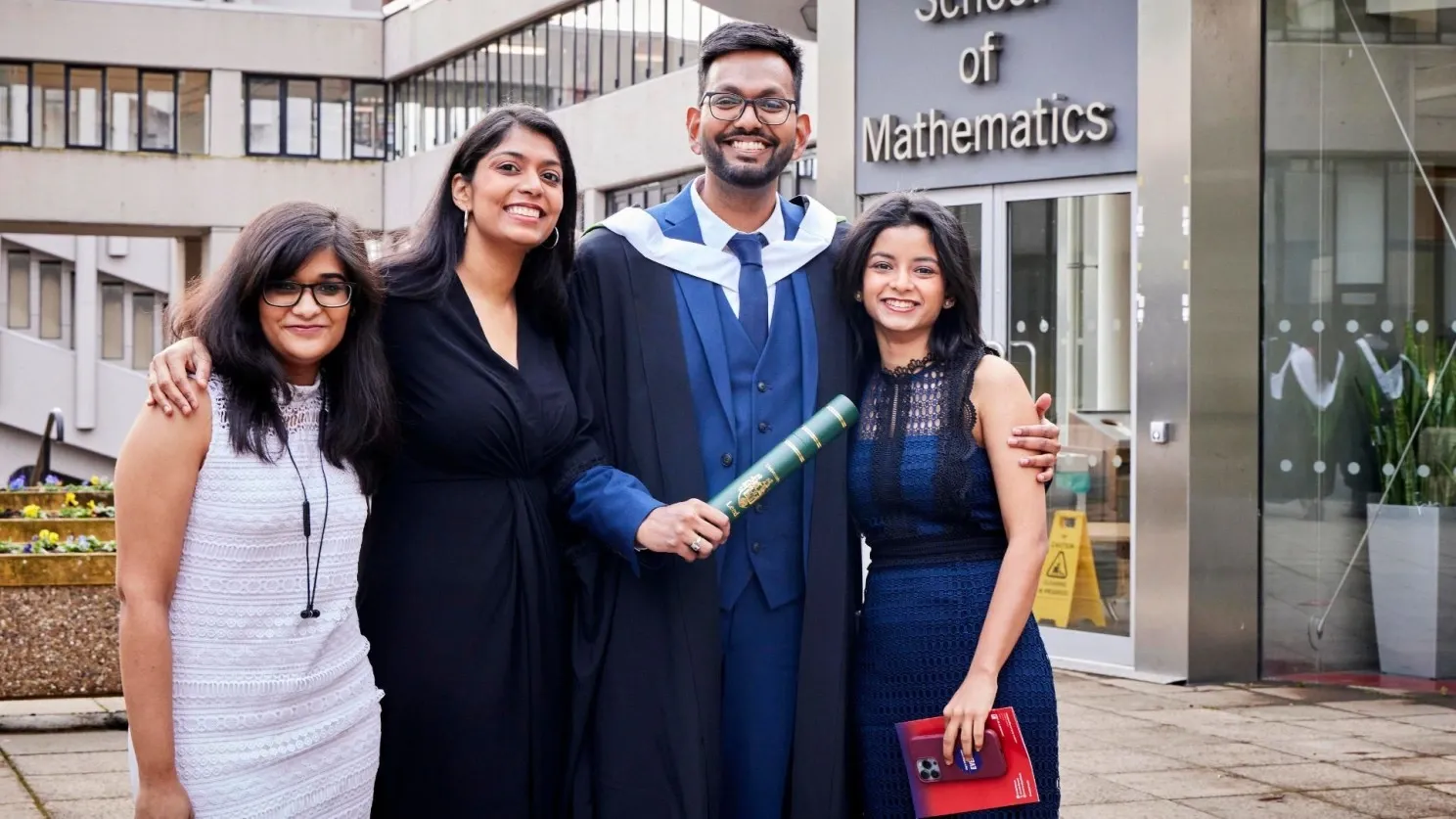
Q. How did you choose where to go for your master’s?
By the time I was ready to move abroad, I was already mid-career, and the idea of spending two full years on a master’s in the US didn’t feel worth the opportunity cost. The UK, on the other hand, offered one-year master’s programs, which made much more sense for me.
The entry requirements were also more straightforward. I didn’t need to retake exams like the GRE, TOEFL, or IELTS because my undergrad and schooling were in English, and I had significant work experience. As for Leeds, it’s a Russell Group university with a strong reputation, and the city itself struck the perfect balance, not too big, not too small. Leeds also boasts a thriving financial hub, making it an ideal location for opportunities. Additionally, when I connected with alumni on LinkedIn, their feedback about the university and the overall experience was overwhelmingly positive.
Q. Tell us about your academic and student life at Leeds?
I landed in the UK right after the Queen’s burial in 2022. The next day was a bank holiday, so when I went to the supermarket with a friend from my accommodation, I had my first real culture shock. Simple things like coriander felt so expensive compared to India. And then, the realization hit me that everything, cooking, cleaning, and grocery shopping, had to be done on my own. There were no home delivery services like Blinkit or Zepto, so I had to adapt quickly. Even something as basic as the amount of walking was a significant change. In India, I wasn’t used to walking so much, but in the UK it’s just part of daily life. You either become fit or the country makes you fit!
On the academic side, the structure at Leeds was really well thought out. The first trimester was manageable, but the second was very technical and coding-heavy, which pushed me out of my comfort zone in a good way. There were only two mandatory subjects, and the rest were electives, which meant I could design my master’s based on my interests and career goals. My friends and I chose subjects that would strengthen our profiles for job applications, and that customization made the program far more practical and relevant for us.
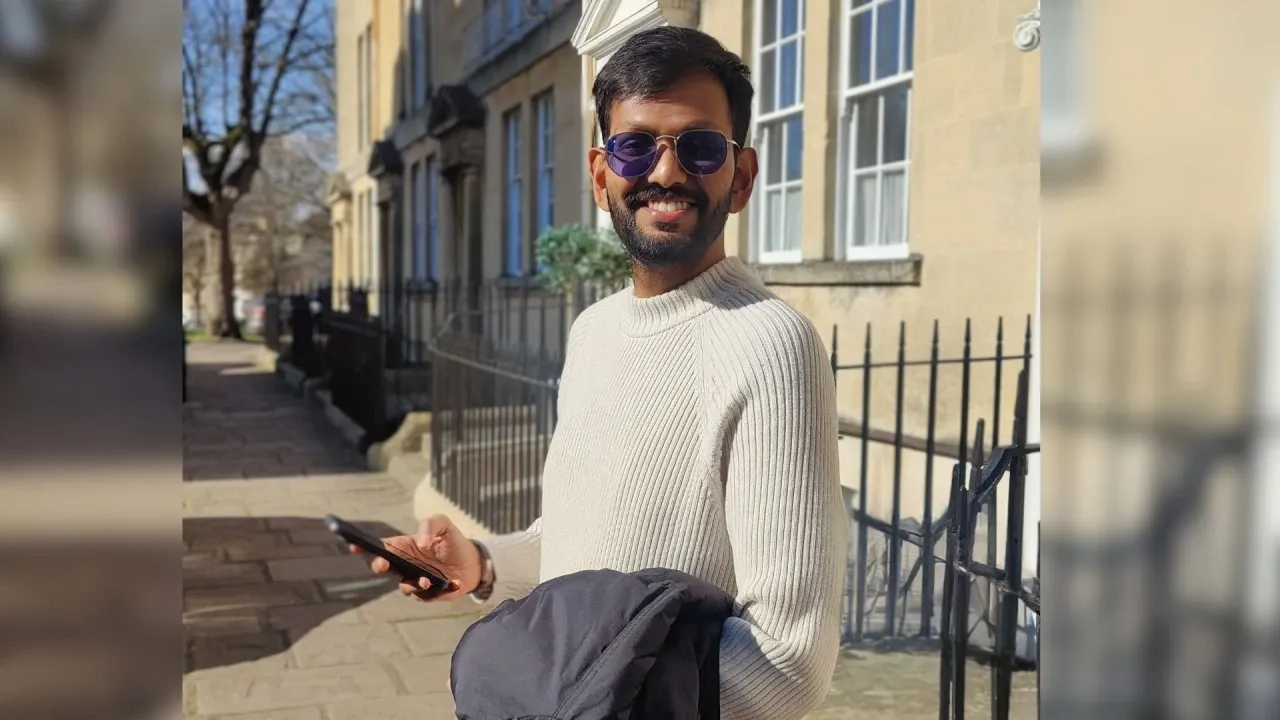
Q. How did you land your job?
One of the first things I had to adapt to was the Application Tracking System (ATS), which is widely used by recruiters and companies in the UK. It took me several iterations and drafts to fine-tune my CV into a version that would actually pass through those filters.
Another difference was in the process itself. In India, if your CV is strong, you almost always get a callback, and the real challenge lies in cracking the interview. In the UK, it’s the opposite; you can have a 90–100% profile match with the job description and still get rejected, often without any feedback. So just getting a callback itself becomes the biggest hurdle, and once you do, the interview process is fairly similar to India.
In terms of strategy, there are generally two approaches: one is networking and securing referrals, and the other is mass applications with a strong CV. I tried both, but since my field is very technical, networking with complete strangers for referrals didn’t work as well for me. So I leaned on the second approach.
I created separate CVs tailored to different roles—one for Data Scientist positions and another for Data Engineer roles. My goal was to apply to at least 5–10 jobs per day in each category. Given the callback rate is usually just 2–5%, it’s a numbers game. Once I started getting responses, it was all about preparation, technical skills, and interview performance to convert those callbacks into offers.
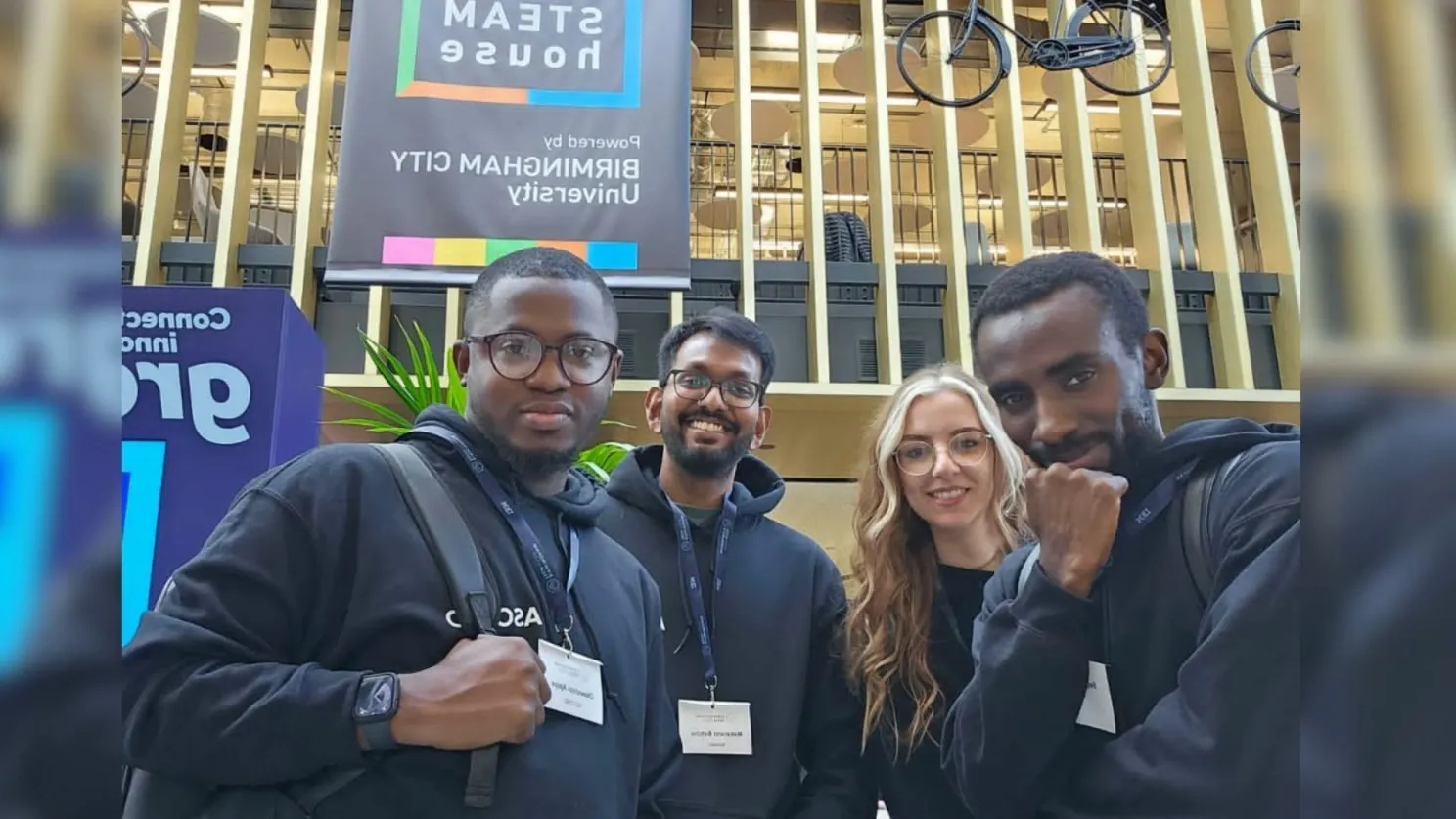
Q. How integral was Leap Scholar to your study abroad journey?
The support I received, right from shortlisting universities to the actual application process, was invaluable. Even during the visa stage, the guidance I received made things significantly smoother. I still remember my advisor spending over an hour on a screen share with me, patiently going through every single question on the visa application. Before that, she had already guided me on the exact documentation I would need, which made the process much less stressful. Having that kind of step-by-step support gave me a lot of confidence and really streamlined the whole experience.
